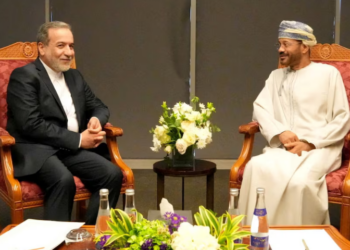BEIJING, April 9, 2025: In a dramatic escalation of trade tensions, China announced it will raise tariffs on U.S. imports from 34% to 84%, effective 12:01 a.m. CST on April 10, following Washington’s recent tariff hike on Chinese goods. The move marks a significant deepening of the ongoing trade conflict under President Donald Trump’s administration.
In a statement released Wednesday, China’s Ministry of Finance condemned the U.S.’s decision to increase tariffs, calling it a “mistake on top of a mistake” and a direct violation of the principles of the multilateral trading system.
“The U.S.’s continued escalation infringes on China’s legitimate rights and interests and severely undermines global trade rules,” the statement said.
The latest retaliatory measure follows a new 50% tariff imposed by the U.S. last week on top of existing duties, raising the total tariff rate on Chinese goods to 104%. The White House declared that negotiations with China were “terminated” in light of what it called Beijing’s unwillingness to engage in meaningful dialogue.
China has reiterated its readiness to take further action if necessary. In a policy white paper released by the Ministry of Commerce, Beijing warned that it will “fight to the end” if Washington continues to impose aggressive trade restrictions.
“China has the firm will and sufficient means to respond with necessary countermeasures,” the document stated, while criticizing the U.S. for undermining bilateral agreements and international trade norms.
While many countries affected by the U.S. tariff hikes have initiated negotiations with the Trump administration, China has so far declined to do so. Instead, it has implemented a 34% tariff on all U.S. imports, imposed export controls on rare earth minerals, and threatened additional punitive actions.
The white paper also criticized recent U.S. moves against TikTok, citing them as a breach of the phase one trade deal signed during Trump’s first term. A newly passed U.S. law requiring TikTok to be sold by its Chinese parent company, ByteDance, or face a nationwide ban was seen by Beijing as a violation of the agreement not to coerce technology transfers.
President Trump last week signed a temporary extension allowing TikTok to operate for another 75 days. However, Chinese authorities have signaled they will not approve any sale of the app until comprehensive trade negotiations resume.
China also pushed back against U.S. claims of a trade imbalance. Citing data from 2023, the Ministry of Commerce highlighted a $26.57 billion deficit in services trade with the U.S., covering sectors such as insurance, banking, and accounting. The white paper argued that when services and revenues from U.S. companies operating within China are included, the overall trade relationship is “roughly in balance.”
Chinese officials warned that escalating tariffs will not resolve the U.S.’s economic challenges and may, in fact, exacerbate them.
“History and facts have proven that increasing tariffs will not solve America’s problems,” said the Ministry of Commerce. “Rather, it will destabilize financial markets, fuel inflation, weaken the U.S. industrial base, and heighten the risk of economic recession—ultimately backfiring on the United States itself.”








